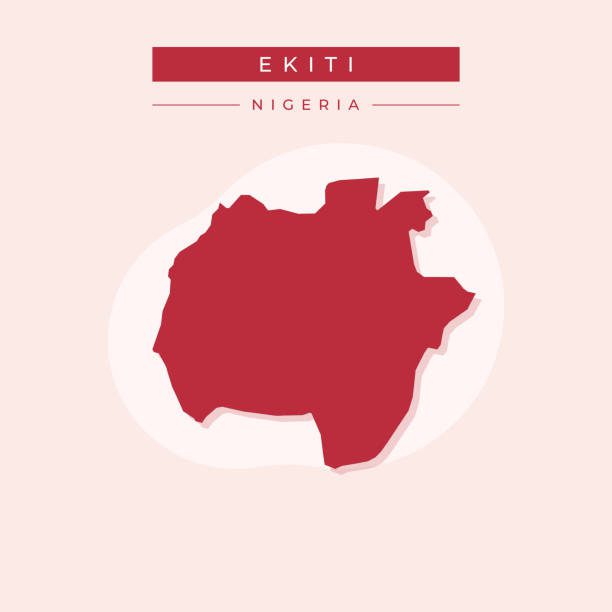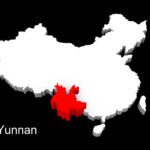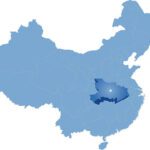The Center for the Scientific Study of Families reports are designed to provide relevant information about the conditional state of families in a specified context. The report provides information such as population, culture, family structure, and family life.
Family reports are an important tool for improving the lives of families. By providing information about the family’s conditional state and context, family reports can help improve communication between families and service providers and lead to better outcomes for families and children
Overview of Ekiti
Ekiti, often referred to as Ekiti State, is located in the Southwestern region of Nigeria known for its rolling hills, forests, and rivers. Though it was originally part of Ondo state until 1996, Ekiti is one of the smallest but most populous states in Nigeria with its capital being Ado-Ekiti. The state is mostly made up of the Ekiti people, who are considered to be a part of the Yoruba people. The most recent census data (2016) estimates that Ekiti is home to nearly 3.3 million Nigerians. Generally, Ekiti celebrates its rich cultural heritage through its various traditional festivals that occur throughout the year. Ekiti’s economy is sustained through agriculture, with its integral crops of production being cassava, palm oil, and cocoa (Ekiti State Development and Investment Promotion Agency). Industries producing pottery, shoes, and textiles contribute to Ekiti’s economy as well.
Ethnic and Cultural Diversity
While Ekiti State is home to millions of Nigerians, research is scarce on the exact ethnic and cultural makeup of Ekiti. The vast majority of residents are those of the Ekiti people, and due to this, there is a high level of cultural homogeneity. Additionally, the language spoken throughout Ekiti is Yoruba, with a dialect specific to Ekiti. While not much is known about the smaller subgroups within Ekiti State, one can assume that there is a cultural mix with neighboring states, as land considered part of Ekiti extends into towns in Ondo and Kwara states.
Family Roles and Structure
According to the Ekiti State government website, Ekiti State is considered to be very homogenous and dominated by the Ekiti people. Though the presence of other groups outside of the Ekiti people may exist, research into the family structure and makeup of those in Ekiti is heavily centered on the Ekiti people. Generally, Ekiti people follow traditional multi-generational homes, where parents, grandparents, aunts, uncles, cousins, and children live in the same household or compound. Within these households, family roles generally fall on the patriarchal side, where the father or eldest male holds authority. On the other hand, women in the family are usually tasked with managing the household, small businesses, or farming to help bring in more income. Additionally, there is a communal effort when it comes to raising children, as everyone in the community tends to contribute to their upbringing and well-being. Though these are general trends with family roles and structures, with modernization, there is a potential that there has been a growth in nuclear families as well as a change in family roles for women.
Family Values and Traditions
Again, due to the homogeneity of Ekiti State, the family values and traditions have been boiled down to those of the Ekiti people. For the Ekiti people, the respect of elders is highly regarded. Those lower on the age scale, such as children, are expected to show deference and reverence to the elders with whom they may interact. Considering family size, traditionally, the Ekiti people have valued larger families. This was due to the ability of large families to preserve and ensure the continuation of a family’s legacy. Alongside this presence of collectivism comes the value of collectivistic celebrations that occur for birthdays, weddings, religious festivals, and even funerals. The Ekiti people also see education as very important, though nationally, Nigeria still holds a gender gap in education. Some traditions that the Ekiti people have are mainly related to children: upon the birth of a child, a naming ceremony is held to welcome them into the family, and allow them to receive blessings, usually associated with symbolic rituals.
Conclusion
In summary, family life in Ekiti, Nigeria, is influenced by the familial roles, and values that they hold. Further investigations can be done to get a closer look into more specific details that may give one a deeper understanding of Ekiti family life, such as marriage, divorce, and birth rates. With the rise of globalization and modernization of society, it would be worthwhile to explore more in-depth how this is changing families in Ekiti, and, in turn, Nigeria. However, at this moment, understanding the makeup of families in Nigeria can be used to draft social services and policies that allow Ekiti families to thrive.





